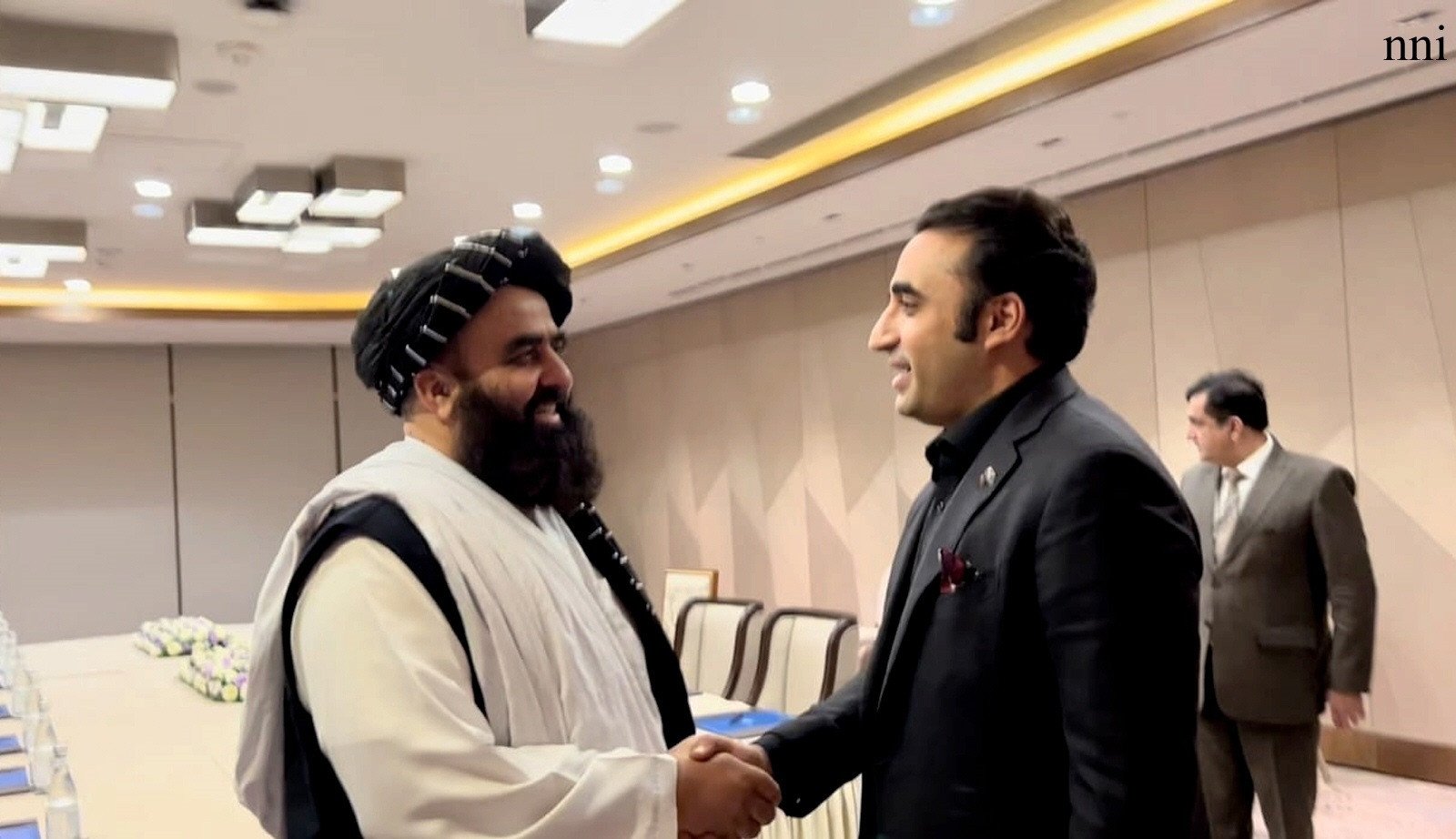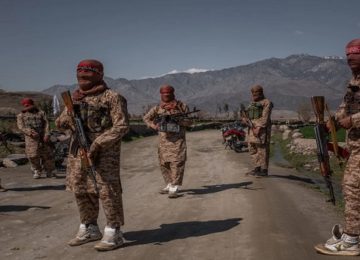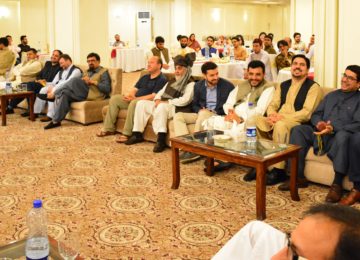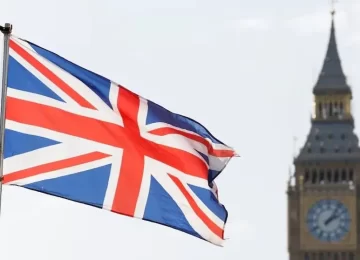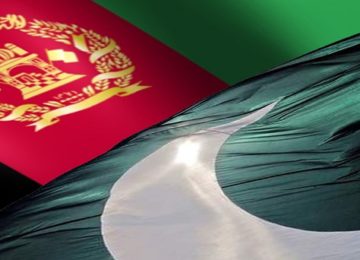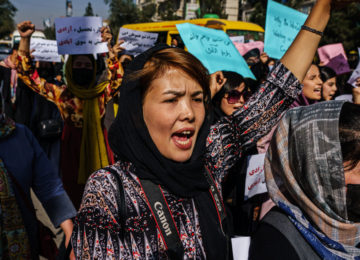Peace in Afghanistan is crucial to peace in Pakistan and vice versa. With the Taliban’s return, Pakistan expected the de facto group to be a cooperative ally, but the situation says otherwise. The inefficacy and eventual failure of talks with TTP, the Afghan Taliban’s ill-treatment of girls and women, and general scorn from across the border make Pakistan critical of Afghanistan. Realistic expectations and cooperation are what the two countries need.
With the return of the Taliban in Afghanistan, Pakistan felt that it finally had a ‘friendly’ government across the border. Precisely, it celebrated the Taliban’s triumph – for some reasons, the foremost being India’s immediate departure from the scene, a country that had remained closer to the former Afghan government. India’s increased presence in Afghanistan in the past few years remained an irritant for Pakistan. The Indo-Afghan camaraderie became one of the root causes of dismay between Pakistan and Afghanistan. Hence, the region was devoid of sustainable peace.
Since August 15, 2021, trade has remained the most potent viaduct between the two countries. But, overall, Pakistan’s trade with Afghanistan has declined by up to 30%. What stands out is that so far Pakistan has resolved most of the challenges related to trade and transit. At present, economic connectivity between the countries is at its smoothest. The recent coal deal has also helped Pakistan earn the neighboring country’s goodwill. Afghanistan also exported vegetables in bulk to Pakistan when the country lost major vegetation amidst the deadly floods. These are a few, but significant developments to cherish and highlight.
But some pressing challenges still cause bad blood between the two neighbors.
To bring an end to the TTP’s 14-year fight against Pakistan, Pakistani officials held negotiations with the terrorist organization, which were mediated by the Afghan Taliban. But when it became evident that the demands of a resolute TTP could not be negotiated, negotiations broke down months ago. Since then, they’ve stopped. Instead, Pakistan has been forced to carry out covert operations against TTP figures and objectives in Afghanistan. Informed sources claim that this resulted in the death of three of the militant group’s top leaders. Although Kabul has expressed outrage, Pakistan is unlikely to stop taking such unforeseen moves. Pakistan also questions Afghan Taliban’s intent and efficacy vis-à-vis their role in the TTP vs Pakistan government conflict. The fact that the negotiations happened in Kabul implied that Pakistan had expected a lot from the Taliban, but the results were beyond unsatisfactory. TTP has expedited its insurgency – needless to say.
The re-emergence of Tehrik-e-Taliban Pakistan (TTP from here onwards), and its resettlement in the Swat region is one of the most imminent concerns of Pakistan. This happened as a consequence of Pakistan allowing certain group members to enter the country and settle there – an irrational move made for the TTP during negotiations. However, the security situation in Swat, where citizens have participated in many anti-TTP protests, has forced Pakistani law enforcement officials to take action against the militant group.
So, what does Pakistan want from Afghanistan?
Besides the security concerns, Pakistan is upset with the Taliban because of their unfulfilled promises, especially regarding girls’ education and respect for basic human rights. Pakistan’s top-tier leadership has been vocal about the Taliban’s repressive measures against girls and women. For the first time, top officials have been speaking out publicly on the denial of education to girls and the continued closure of secondary girls’ schools by Taliban authorities. Foreign Minister Bilawal Bhutto-Zardari claimed that the Taliban had broken their promise to support females’ education in an interview with France24 last month. In an important statement to the UN, Prime Minister Sharif stated that Pakistan was working to persuade Kabul to respect the rights of Afghan girls and women to an education and a job.
Sharif also said that Pakistan has concerns over the presence of terrorist outfits in Afghanistan, which is a threat to regional peace. Similar concerns were raised by numerous other Muslim countries. For instance, to stop Afghanistan from developing into a hub for the spread of terrorism, Saudi Foreign Minister Faisal bin Farhan urged for collaboration among all countries. Interestingly, the Afghan Taliban were more offended by what Pakistan said at the UNGA convention. Amidst an outpouring of reaction from different Taliban officials, Afghan Deputy Foreign Minister Sher Abbas Stanekzai issued an extremely sullen statement accusing Pakistan of feeding off the Afghan conflict for economic gain. The most appalling part of Stanekzai’s statement was that the Taliban have proof of Pakistan’s dubious role in Afghanistan.
The Taliban consider the accusations against them to be unfair given their valiant efforts to combat the threat posed by the Islamic State of Khorasan in their country. They seek global recognition for their efforts to combat the insurgent group. Apart from their early declarations that they would destroy the IS-K within weeks of gaining control, their ideological enemy has been gradually infiltrating their ranks. Since the Taliban took control of Kabul, more than 16 diplomatic missions have started to operate there. The IS-K seeks to undermine the Taliban’s assertion that they can guarantee the country’s security. From that vantage point, it is possible to understand the IS-K attack on the Russian diplomatic mission in Kabul.
TTP, on the other hand, is making it difficult for the Taliban to win international support. Concerningly for China and the Central Asian governments, the TTP’s comeback indicates that Al Qaeda and organizations like the East Turkestan Islamic Movement and the Islamic Movement of Uzbekistan can also gain ground there. Al-Zawahiri’s killing strengthened this perception further.
It is easy to sense the nature and cause of the tense ties between Pakistan and Afghanistan, but, at the same time, it is apt to say that both countries’ leaderships have primarily stuck to their dogmas. Both are uncomfortable with inclusion and are unable to manage it. It has long been suggested that Pakistan should broaden its connections with the Afghan people and be warned against putting all of its faith in the Taliban.
But Pakistan feels for Afghanistan too. On multiple occasions, it has denounced the West’s decision of freezing the Afghan assets (as of now, the Biden administration has announced that it would set up a fund for the rebuilding of Afghanistan and incorporate the frozen assets into that). Pakistan’s Minister of State for Foreign Affairs, Hina Rabbani Khar, said in an interview in June 2022, that isolating Afghanistan economically was pushing the country into economic collapse. “If the country remains locked out of international banking and its foreign assets remain frozen, then that is what will happen. We must not promote famine,” she added. The Pakistan Foreign Minister, Bilawal Bhutto Zardari, also opposed the freezing of Afghan assets. At a press conference held two weeks ago in Washington DC, Bilawal said that he had presented Pakistan’s clear stance before the United States (US) regarding freezing Afghanistan’s assets. “Today, assets of Afghanistan have been frozen, tomorrow it might be another country or Pakistan,” he said.
Pakistan has not received much fruit from its support for the Taliban, especially in areas that are significant to it, including border security, the dismantling of terrorist networks, etc. However, analysts maintain that once the Taliban have overcome the current economic and humanitarian problems, Afghanistan would be Pakistan’s major ally in the region – a cooperative one. Both Pakistan and Afghanistan should be realistic about each other’s roles.
If they cannot guarantee the disseverance of TTP and its motives, the Taliban, at least, should not give an impression that they have any sympathies for the insurgent group. As a caring neighbor, Afghanistan should treat all terrorist outfits with a zero-tolerance approach. While at the same time, Pakistan should also be pragmatic. Expecting the Taliban to openly condemn TTP is delusory since both TTP and Afghan Taliban belong to the same school of thought i.e., the supremacy of theocracy instead of Westphalian democracy in the region. Secondly, both neighbors should focus on economic connectivity. If Afghanistan gets closer to India for the sake of economic and humanitarian assistance, Pakistan should see it as. And, focus on how it can expand trade and business with Afghanistan.
Along with other countries in the region, Pakistan must also advocate for the Taliban’s recognition – if the de facto group fulfills what it should have long ago (especially the reopening of girls’ schools, improved state of security, and peace across the region). Whatever Pakistan wants from Afghanistan is the same as what it wants for Afghanistan. A secure border, eradication of terrorism, and an educated female (and male) population are what will help Afghanistan most of all. The demands of Pakistan and the international community are for Afghanistan’s sake – the Taliban must rid themselves of the misconception that the entire world is against them.
Originally published in Matrix Magazine
Dated: October 14, 2022
——————————
By Elsa Imdad
Elsa Imdad is a USG Alumna. She holds a bachelors in modern languages with an English major and Spanish minor. She has previously been part of American Spaces in Pakistan and now works as a Project Coordinator at the Center for Research and Security Studies. She is also a weekly contributor for Matrix. Her interests include public diplomacy, language teaching, peace and conflict resolution, capacity building for marginalized groups, etc.



